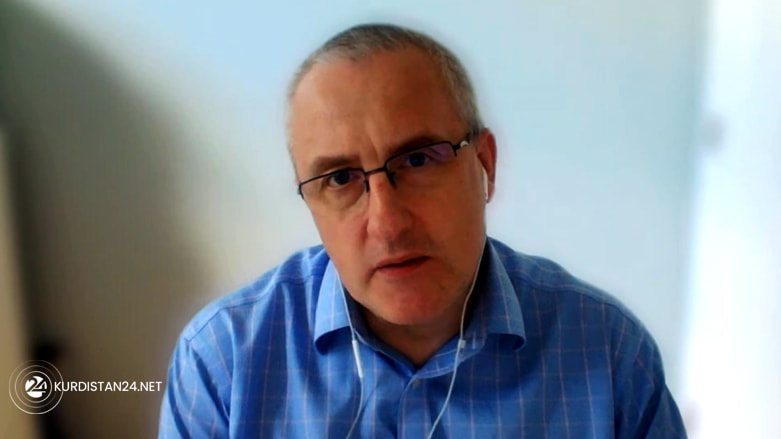What Iraq needs is good leaders, not another election, Michael Knights, a researcher at Washington Institute for Near Eastern Politics told Kurdistan 24 on Tuesday.
“Iraq is over a crossroads; we have something a little bit different happening down in Baghdad,” said Knights. “We had a coup at the start of the year when the Shiite Coordination Framework took over the judiciary and now, we have a coup of a different kind when Muqtada al-Sadr takes over the parliament; so, we are in a deadlock again and we might be heading to elections.”
Knights pointed out that elections can’t necessarily save Iraq, emphasizing that “what Iraq needs is good leaders and that will take some time to be able to come through any set of elections because right now good leaders are not allowed to lead the political parties in Iraq.”
Knights argued that “It's very different this time, if you think about it, the government of Adil Abdul-Mahdi was the first government that didn’t go all four years, and this is the first time we have come through elections and we probably going to fail to produce a government.”
“It’s the first time in Iraq that the entire electoral process failed to result in a transition of government, so it’s new territory for Iraq; it’s a worrying territory; this is why it feels like something different and Sadr is asking for a significant change in the system and this is again new.”
Knights warned that “we might be going to see people trying to seize other parts of Iraq; now the parliament and the land opposite have been taken by the Sadrists; what if the Sadrists take another key institution? The presidency, the judiciary, prime minister’s office; what if other political factions tried to seize other key buildings in Baghdad or in Basrah? This sounds like the beginning of civil war unless somebody stops it.”
“When people can’t change the political system through legal means it pushes them toward violence,” he said. “I can’t expect any next electoral systems to be any better; I think it will be worse for the independents and the security environment has not gotten any better; protests are more probably getting more and more violent over the years.”
“I think that Iran has initially supported Nouri al-Maliki and Qais al-Khazali to form a government without Sadr but I think now Iran is reconsidering if that is a good idea and now, they probably backing Hadi Al-Amiri and the rest of the Coordination Framework and trying to negotiate with Sadr and go towards new elections,” said Knights. “So, I think even the Iranians have seen this as a dangerous road.”
Source (Click Here)


 RSS Feed
RSS Feed